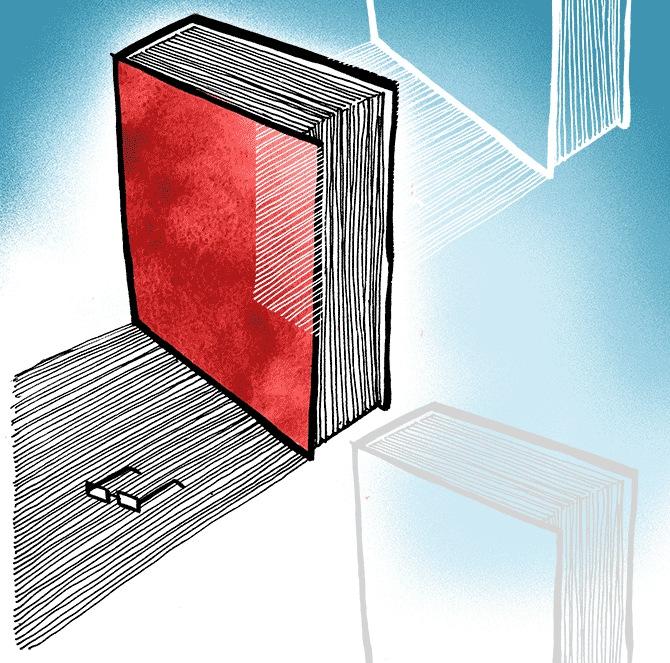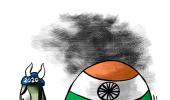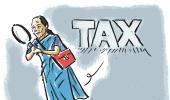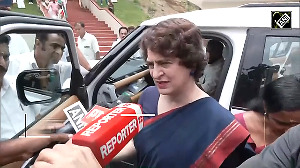In the future, publishers will need to think of digital immersive marketing just like marketing a movie or show on Netflix is an immersive experience.

After two months of minimal print sales, the publishing industry is turning the page with operational guidelines for printers, suppliers, warehouses, distributors, and wholesalers for a business dominated by brick-and-mortar sales.
The lockdown may be over in most markets, but the aftereffects are being felt now.
The iconic Full Circle bookstore in Khan Market in New Delhi has closed a two-decade-old chapter, boding ill for a business in a world focused on high touch zones, social distancing, and air ventilation to prevent the spread of a contagion.
Amrita Somaiya, owner of Kitab Khana in Mumbai, says, "It has been a difficult time for us. We don't have an online sales platform. We don't sell anything but books."
Presently, Kitab Khana is open for limited hours, but only with kerbside pick-up and home delivery and no in-store browsing.
Most publishers report high online sales, zero offline sales, and deferred schedules.
"It's difficult to predict when the sector will bounce back.
"It will depend on how consumers view discretionary spends in the coming months as we face the twin challenges of controlling the pandemic while ramping up economic activity," said Thomas Abraham, chief executive officer (CEO), Hachette India.
Hachette's online sales jumped 90 per cent in the past few months.
Ananth Padmanabhan, CEO, HarperCollins India, says his online sales have also soared 100 per cent and "it started publishing books as e-books in May".
Across the industry, print versus digital is 95 per cent and 5 per cent, respectively.
Others see similar trends.
Gautam Padmanabhan, CEO of Westland Publications, says, "We have seen initial surge, especially in the category of children's books (as stores opened selectively)," adding, "during the three phases of the lockdown, the sale of books virtually stopped.
"It is during Lockdown 4.0 that we saw gradual opening of offline stores and resumption of online supplies (even in red zones)."
Meanwhile, most will resume business by end-June.
Nandan Jha, senior vice-president-product & sales, Penguin Random House, says it normally releases between 200 and 250 books a year, but has down-shifted to release 100 new titles till December.
The big ones will include fiction, including a collection of essays titled Azaadi by Arundhati Roy and new memoirs by Ruskin Bond, he said.
How about titles launched prior to the lockdown?
Abraham says books that went out late January to early March had their sales and promotional cycle interrupted.
“They need to be re-promoted. Publishing schedules will probably see a lag of three months,” he said, adding, "We revisited our pipeline and towards end-June will resume releasing new titles.
"In order to ensure marketing and sales bandwidths are not over-stretched, we have had to push a few releases into next year."
The frontlist decline (new books published annually) precedes the pandemic.
"Last year, for 95 per cent of new books released all over the country across every publisher, less than 500 copies were sold. This is a worrying trend," said Abraham, adding, "Outside big brands and break-out new books like The Silent Patient or Gone Girl, it is difficult to establish new titles or build new authors and new brands."
Can digital replace the real McCoy?
Jha says store sales for print are the bread and butter for all publishing houses, with e-books being less than 10 per cent.
For its part, Penguin Random House is pushing marketing with more audio and e-book launches, said Jha, adding that bookstores are also looking to sign up with platforms like Dunzo, Swiggy, and Zomato to deliver books as well.
As a product, books are immersive as is the browsing experience for books, which is a big draw for book lovers.
In the future, publishers will need to think of digital immersive marketing just like marketing a movie or show on Netflix is an immersive experience, says Uma Talreja, chief marketing and customer officer, Shoppers Stop, which owns Crossword Bookstores.
New formats will include audiobooks, podcasts, and more.
Anil Dharker, founder and director of the Mumbai International Literary Festival, says he expects to see more shutdowns across stores, but hopes festivals will pick up by year-end.
"So far, there is no replacement for live events and the experience of meeting authors."












 © 2025
© 2025